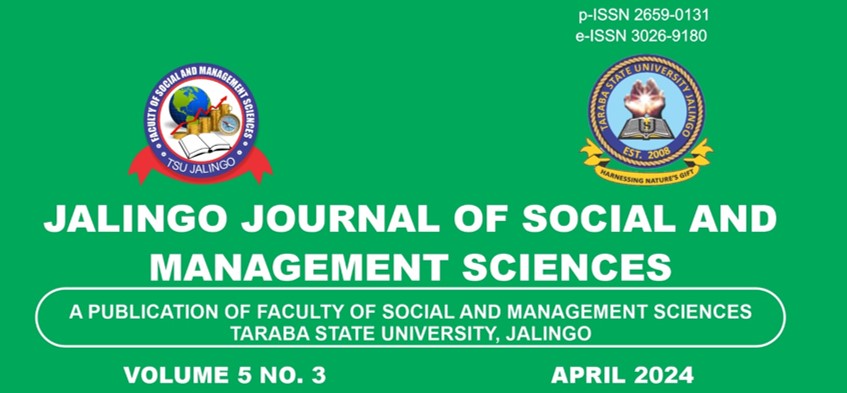Macroeconomic Determinants of Banking Sectors Development in Nigeria
Keywords:
Banking sector development, Economic growth, Inflation rate, Interest group theory, Monetary policy rate, trade opennessAbstract
This study investigated the macroeconomic determinants of banking sector development in Nigeria. The objective of the study is to investigate the impact of economic growth, inflation rate, trade openness and monetary policy rate on banking sector development. The study covered a time period of 1990-2021. The Ordinary Least Squares (OLS) analysis technique was adopted for the study’s analysis based on the fact that the variables were stationery at levels. Time series data on banking sector development, economic growth, trade openness, inflation rate and monetary policy rate from 1990 - 2021 were extracted from the CBN Statistical Bulletin and analyzed using descriptive statistics, unit root test and OLS regression techniques and the data were estimated. The Augmented Dickey Fuller (ADF) and Dickey Fuller GLS Unit root tests results showed that economic growth, inflation rate, trade openness and monetary policy rate on banking sector development were stationery at levels based on the fact that ADF statistics > ADF at 5% and the OLS findings revealed that economic growth has no significant impact on banking sector development at p-value >0.05, inflation rate has no significant impact on banking sector development at p-value >0.05, trade openness has no significant impact on banking sector development at p-value >0.05 while that monetary policy rate has a significant impact on banking sector development at p-value <0.05. The study recommended that policymakers should strive to pursue growth and development of the banking sector in Nigeria by efficient usage of the monetary policy rate.

Downloads
Published
Issue
Section
License
Copyright (c) 2024 JALINGO JOURNAL OF SOCIAL AND MANAGEMENT SCIENCES

This work is licensed under a Creative Commons Attribution-NonCommercial 4.0 International License.
